Implementation, Consulting, Auditing & Certification at one place . We focus on taking your business to new heights.
SOC 2 Certification in Kenya – SOC 2 stands for Service Organization Control 2. It is a type of audit report that evaluates the controls and processes of a service organization that are relevant to security, availability, processing integrity, confidentiality, and privacy of customer data. The audit is performed by a third-party auditor and is based on the Trust Services Criteria established by the American Institute of Certified Public Accountants (AICPA).
SOC 2 reports in Kenya are intended for service organizations that provide services such as cloud computing, data hosting, and software as a service (SaaS). The reports provide assurance to customers and other stakeholders that the service organization has implemented adequate controls to protect their data and ensure the reliability of the services provided. There are five Trust Services Criteria that a service organization can be evaluated against, including security, availability, processing integrity, confidentiality, and privacy.
Service organizations that handle sensitive or confidential information on behalf of their clients or customers, such as data centers, cloud computing providers, SaaS (software as a service) providers, and other types of service providers may need SOC 2 certification in Kenya.
The certification is particularly relevant for service organizations that operate in industries with strict regulatory requirements, such as healthcare, financial services, and government. SOC 2 certification in Kenya can provide assurance to customers and stakeholders that the service organization has implemented adequate controls to protect their data and ensure the reliability of the services provided.
While SOC 2 certification in Kenya is not mandatory, it is becoming increasingly important as more organizations are looking for vendors and service providers that can demonstrate their commitment to security and compliance.
The SOC 2 certification process in Kenya is similar to the process in other locations and involves the same steps as mentioned below.
The SOC 2 certification process in Kenya involves several steps:
The SOC 2 certification process in Kenya can take several months to complete, depending on the complexity of the service organization’s systems and processes.
The SOC 2 requirements in Kenya are based on the Trust Services Criteria established by the AICPA, which include the following five principles:
To meet the SOC 2 requirements in Kenya, a service organization must implement controls that are designed to address these principles. The controls should be documented, tested, and monitored on an ongoing basis to ensure that they are operating effectively. The service organization must also provide evidence of the effectiveness of the controls to the auditor during the SOC 2 audit in Kenya.
The SOC 2 requirements in Kenya are flexible and can be tailored to the unique needs of each service organization. However, it is essential to ensure that the controls implemented are appropriate and effective in addressing the relevant Trust Services Criteria.
What is the main purpose of soc 2 certification in Kenya?
The main purpose of SOC 2 certification in Kenya is to provide assurance to customers and stakeholders that a service organization has implemented adequate controls to protect their data and ensure the reliability of the services provided.
SOC 2 certification in Kenya is particularly relevant for service organizations that handle sensitive or confidential information on behalf of their clients or customers, such as data centers, cloud computing providers, SaaS (software as a service) providers, and other types of service providers.
By obtaining SOC 2 certification, service organizations can demonstrate their commitment to security, availability, processing integrity, confidentiality, and privacy of customer data. The certification can help service organizations build trust with their customers and stakeholders and differentiate themselves from competitors who have not undergone a SOC 2 audit in Kenya.
Additionally, SOC 2 certification in Kenya can help service organizations comply with regulatory requirements and industry standards, such as HIPAA for healthcare, PCI DSS for payment card industry, and the NYDFS Cybersecurity Regulation for financial institutions in Kenya.
The cost of SOC 2 certification in Kenya can vary depending on several factors, such as the size of the service organization, the complexity of the systems and processes, and the level of readiness of the organization.
Some of the typical costs associated with SOC 2 certification include:
Overall, the cost of SOC 2 certification in Kenya can be significant, especially for small or mid-sized service organizations. However, the benefits of certification, such as increased customer trust and compliance with regulatory requirements, may outweigh the costs in the long run.
SOC 2 audit in Kenya, it is an independent examination of a service organization’s controls related to the Trust Services Criteria established by the AICPA. The SOC 2 audit is performed by a qualified third-party auditor who is a Certified Public Accountant (CPA) and is conducted in accordance with the attestation standards established by the AICPA.
During the SOC 2 audit in Kenya, the auditor will examine the service organization’s controls to determine whether they are designed and operating effectively to meet the relevant Trust Services Criteria. The auditor will also evaluate the service organization’s risk management processes and assess the effectiveness of the controls in mitigating the identified risks.
The SOC 2 audit typically involves the following steps:
The SOC 2 audit in Kenya can provide valuable information to the service organization’s customers and stakeholders, demonstrating that the service organization has implemented adequate controls to protect their data and ensure the reliability of the services provided.
SOC 2 (System and Organization Controls 2) reports are designed to provide assurance over the controls that an organization has in place to ensure the security, availability, processing integrity, confidentiality, and privacy of customer data. These reports are typically used by service organizations to demonstrate to their customers and other stakeholders that they have effective controls in place to protect sensitive information.
Service organizations that handle sensitive customer data, such as financial or healthcare information, are the primary audience for SOC 2 reports in Kenya. This includes cloud service providers, software as a service (SaaS) providers, data centers, and other organizations that provide outsourced services to other businesses.
In addition to service organizations, customers of these service providers may also require SOC 2 reports as part of their due diligence process when evaluating potential vendors. This is especially true for customers in highly regulated industries such as healthcare, finance, and government.
Overall, any organization that handles sensitive customer data or provides outsourced services to other businesses can benefit from obtaining a SOC 2 Certification in Kenya. The report provides a valuable third-party attestation of the effectiveness of the organization’s controls, which can increase customer trust and help the organization differentiate itself in a crowded marketplace.
Any company that processes, stores, or transmits sensitive customer data can potentially be eligible for SOC 2 certification in Kenya. This includes both service organizations that provide outsourced services to other businesses, as well as non-service organizations that handle sensitive data.
Some common examples of service organizations that may seek SOC 2 certification in Kenya include:
Non-service organizations that handle sensitive data, such as financial institutions or healthcare providers, may also seek SOC 2 certification in Kenya as a way to demonstrate their commitment to security and data protection.
It’s worth noting that SOC 2 certification in Kenya is not mandatory for any organization, and it’s up to each company to determine whether it makes sense for them to pursue certification based on their specific business needs and risk profile. However, for organizations that handle sensitive customer data or provide outsourced services, SOC 2 certification can provide a valuable third-party attestation of the effectiveness of their controls and help them differentiate themselves in a competitive market.
Here is a checklist of some of the key areas that need to be addressed to achieve SOC 2 compliance in Kenya:
This is not an exhaustive list, but it covers some of the key areas that need to be addressed to achieve SOC 2 compliance in Kenya. It’s important to note that SOC 2 compliance is an ongoing process, and organizations need to continually monitor and update their controls to ensure ongoing compliance.
SOC 2 controls are the policies, procedures, and technical measures that an organization implements to ensure the confidentiality, integrity, availability, processing integrity, and privacy of the data it processes or stores on behalf of its customers. Here are some common SOC 2 controls:
These are just a few examples of SOC 2 controls. The specific controls that an organization needs to implement will depend on the nature of its operations, the data it processes, and the risks it faces. It’s important to note that SOC 2 compliance is an ongoing process, and organizations need to continually monitor and update their controls to ensure ongoing compliance.
SOC 2 compliance is important for several reasons:
Overall, SOC 2 compliance is important because it helps organizations protect sensitive data, meet regulatory requirements, and improve operational efficiency. It also provides assurance to customers and partners that the organization is committed to information security and data privacy.
A SOC (System and Organization Controls) audit is an independent examination of an organization’s controls related to security, availability, processing integrity, confidentiality, or privacy. The audit is typically conducted by a qualified third-party auditor who is licensed, certified, or registered to perform SOC audits.
Here are some examples of professionals who may perform a SOC audit in Kenya:
In order to perform a SOC audit in Kenya, the auditor must be independent and free from conflicts of interest. The auditor must also follow the AICPA’s guidelines for performing SOC audits, which include planning, testing, and reporting on the effectiveness of the organization’s controls.
SOC 2 Certification does not have a specific expiration date, but it is typically recommended that organizations undergo a SOC 2 audit and certification process annually. This is because the SOC 2 report provides a snapshot of the organization’s controls and practices at a specific point in time, and these controls and practices can change over time as the organization’s business and IT environment evolves.
In addition, many organizations that rely on SOC 2 certification in Kenya as part of their business relationships may require their service providers to undergo a SOC 2 audit and certification process annually to ensure that their controls and practices remain effective.
It’s also important to note that SOC 2 certification in Kenya is not a one-time event. Achieving SOC 2 certification in Kenya requires ongoing monitoring and maintenance of the organization’s controls and practices to ensure that they remain effective in meeting SOC 2 requirements in Kenya. Organizations should regularly review and update their controls and practices to address changes in their business and IT environment and to address any issues or deficiencies identified during SOC 2 audits in Kenya.
SOC 2 consultants in Kenya can be a complex process, and many organizations choose to work with SOC 2 consultants to help them prepare for and achieve SOC 2 certification in Kenya. SOC 2 consultants are professionals who specialize in SOC 2 compliance in Kenya and can provide guidance and support throughout the process.
Here are some of the services or Roles and responsibilities of SOC 2 consultants in Kenya:
When selecting a SOC 2 consultant in Kenya, it’s important to look for a firm with experience and expertise in SOC 2 compliance. The consultant should also be familiar with the specific industry and regulatory requirements that apply to the organization.
When selecting a SOC 2 consultant in Kenya, it’s important to evaluate their qualifications and experience, as well as their approach to the SOC 2 compliance process in Kenya. Look for consultants who have experience working with organizations in your industry and who have a track record of success in achieving SOC 2 compliance in Kenya. You should also consider factors such as the consultant’s availability, communication style, and fees before making a final decision.
SOC 2 certification includes improved security controls and risk management, increased customer trust and confidence, compliance with industry standards, and competitive advantage in the marketplace.
Any organization that processes, stores, or transmits sensitive customer data in the cloud, such as SaaS providers, data centers, and other service providers, should consider getting SOC 2 certification.
SOC 2 certification in Kenya involves undergoing an audit by an independent third-party auditor to assess an organization’s security controls and compliance with the Trust Services Criteria (TSC). The auditor will issue a SOC 2 report detailing the organization’s controls and their effectiveness in meeting the TSC requirements.
The Cost of SOC 2 certification in Kenya varies depending on factors such as the size of the organization, the complexity of its systems, and the chosen certification body.
SOC 2 Certification in Kenya involves creating and maintaining policies, procedures, and evidence that demonstrate an organization’s compliance with the Trust Services Criteria (TSC).
We provide SOC 2 certified, you generally need to select a SOC 2 certifying agency, submit an application, provide documentation, undergo an inspection, and receive approval and certification from the certifying agency.
When selecting a SOC 2 consultant in Kenya, it’s important to evaluate their qualifications and experience, as well as their approach to the SOC 2 compliance process in Kenya.




















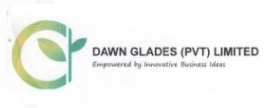
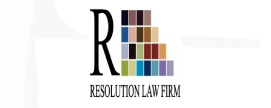

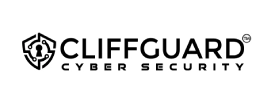
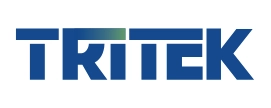
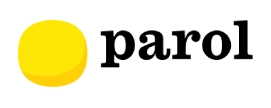
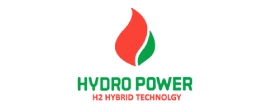

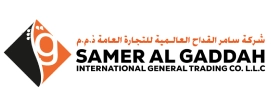

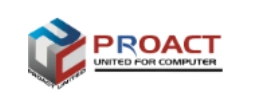
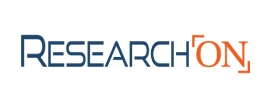
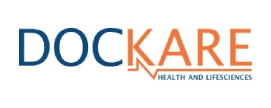
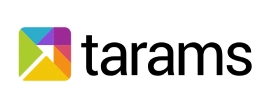
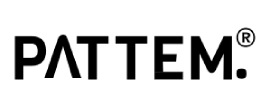

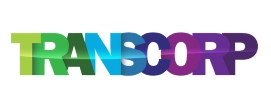
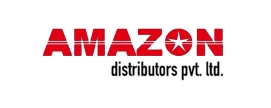
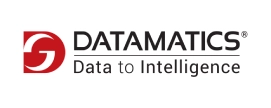
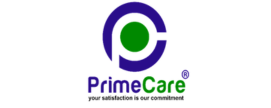










B2BCERT is a Solutions & Service organization, specialized in management consulting, Trainings, Assessments, Certification & Managed Services
MOST SEARCHED ON B2BCERT: ISO 9001 Certification | CE Certification | ISO 22000 Certification | NEMA Certification | ISO 27701 Certification | ISO 27032 Certification | ISO 22483 Certification | REACH Certification | ISO 22301 Certification | ISO 42001 Certification | ISO 41001 Certification | ISO 21001 Certification | ISO 15189 Certification | GMP Certification | GDPR Certification | GDP Certification | GLP Certification | HIPAA Certification | PCI DSS Certification | SOC 1 Certification | KOSHER Certification | NEMA Certification | Certificate of Conformity | GACP Certification | FSSC 22000 Certification | OHSAS 18001 Certification | HACCP Certification | SA 8000 Certification | SOC 2 Certification | VAPT Certification | ROHS Certification | BIFMA Certification | FCC Certification | HALAL Certification
ISO CERTIFICATIONS: ISO 9001 Certification | ISO 14001 Certification | ISO 45001 Certification | ISO 22000 Certification | ISO 27001 Certification | ISO 13485 Certification | ISO 17025 Certification | ISO 27701 Certification | ISO 20000-1 Certification | ISO 27032 Certification | ISO 22483 Certification | ISO 26000 Certification | ISO 22301 Certification | ISO 42001 Certification | ISO 27017 Certification | ISO 27018 Certification | ISO 50001 Certification | ISO 27014 Certification | ISO 29990 Certification | ISO 37001 Certification | ISO 41001 Certification | ISO 21001 Certification | ISO 55001 Certification | ISO 28000 Certification | ISO 22716 Certification | ISO 15189 Certification | ISO 41001 Certification
PRODUCT CERTIFICATIONS: FSSC 22000 Certification | OHSAS 18001 Certification | HACCP Certification | SA 8000 Certification | GMP Certification | GDPR Certification | GDP Certification | GLP Certification | HIPAA Certification | PCI DSS Certification | SOC 1 Certification | SOC 2 Certification | VAPT Certification | CE Certification | ROHS Certification | BIFMA Certification | FCC Certification | HALAL Certification | KOSHER Certification | NEMA Certification | REACH Certification | Certificate of Conformity | GHP Certification | Free Sale Certification | FDA Certification | GACP Certification
WHAT IS B2BCERT: B2BCERT is one of the leading service providers for International recognized standards and Management solutions for Business development, process Improvement, Consulting & Certification services for various International Standards like ISO 9001, ISO 14001, ISO 45001, ISO 22000, ISO 27001, ISO 20000, CE Marking, HACCP & many more. B2BCERT works on the values of trust, fairness & genuine respect for our customers, employees, and business partners.B2BCERT provides internationally recognized standards and management solutions, specializing in ISO and related certification services. Headquartered in Bangalore, India, we have a global presence in the Middle East and Africa. Our team of 30+ professionals ensures tailored solutions by partnering with leading certification firms.
B2BCERT Serves In: India | Nepal | Singapore | Afghanistan | Philippines | Malaysia | Jordan | Turkey | Sri Lanka | Saudi Arabia | Oman | UAE | Kuwait | Yemen | Qatar | Lebanon | Iran | Iraq | Bahrain | South Africa | Egypt | Nigeria | Kenya | Ghana | Tanzania | Zimbabwe | Cameroon | Uganda | USA | UK | Germany | Australia | New Zealand | Canada | Italy | Botswana | Brunei | Cambodia |
Service providing Sectors: Information Security | Manufacturing | Software Companies | Pharmaceuticals | Architecture | Construction | Food & Beverages | News & media | Science & Biotechnology | Electronics Industry | Telecommunications | Hospitals | Import & Export Businesses | Schools & Colleges | Textile Industries | Banks | Aerospace Manufacturing | Hotels & Restaurants | Organic Products | Mining & Renewable Business | Real Estate Business | Public Administration | Wholesale Trade | Supply Chain Management | Agrochemicals | Government Services | Electricity | Regulatory Agencies | Fitness and Wellness | Property Management | Rental Services | Warehousing | Delivery Services | Stores and Shops | IT Support | Event Planning | Consulting | Financial Advisory |
WHY B2BCERT: 1. Expertise Across Standards: B2BCERT is a leader in providing comprehensive solutions for a wide range of international standards, including ISO 9001, ISO 14001, ISO 45001, ISO 22000, ISO 27001, ISO 20000, CE Marking, and HACCP. Our deep knowledge ensures that your business meets and exceeds industry benchmarks with confidence. 2. Tailored Solutions: We understand that every organization is unique. B2BCERT offers customized consulting and certification services designed to fit your specific needs and objectives. Our team works closely with you to develop strategies that enhance your business processes and meet regulatory requirements.3. Global Presence: With headquarters in Bangalore, India, and a strong foothold in the Middle East and Africa, B2BCERT combines local expertise with a global perspective. Our international reach allows us to provide consistent, high-quality service wherever you operate.4. Trusted Partners: We collaborate with leading certification firms to offer you the best possible service. Our established relationships with top certification bodies ensure that you receive credible and widely recognized certifications that enhance your business’s reputation.5. Commitment to Values: At B2BCERT, our core values of trust, fairness, and respect drive everything we do. We are dedicated to building lasting relationships based on integrity and genuine respect for our clients, employees, and partners.6. Professional Team: Our team of over 30 skilled professionals brings a wealth of experience and dedication to every project. We are committed to delivering excellence and supporting you through every step of your certification journey.7. Comprehensive Support: From initial consultation to certification and beyond, B2BCERT provides end-to-end support. We are here to guide you through the complexities of compliance and help you achieve your business goals efficiently and effectively.